Mucosal Infection and Immunity
The group of Mucosal Infection and Immunity, led by Professor Robin Shattock, is part of the Department of Infectious Disease at Imperial College London. Our research focusses on investigating the mechanisms of mucosal infection and immunity to inform development of novel preventative strategies appropriate to a developing world setting. We research, design and evaluate vaccines against globally important pathogens including HIV, SARS-CoV-2, Influenza, RSV, Rabies, Chlamydia and haemorrhagic fever viruses Ebola, Marburg and Lassa. Prof Shattock and his team have pioneered self-amplifying RNA (saRNA) technology, a novel platform for vaccines and therapeutics with the potential to revolutionise epidemic and pandemic preparedness and response.
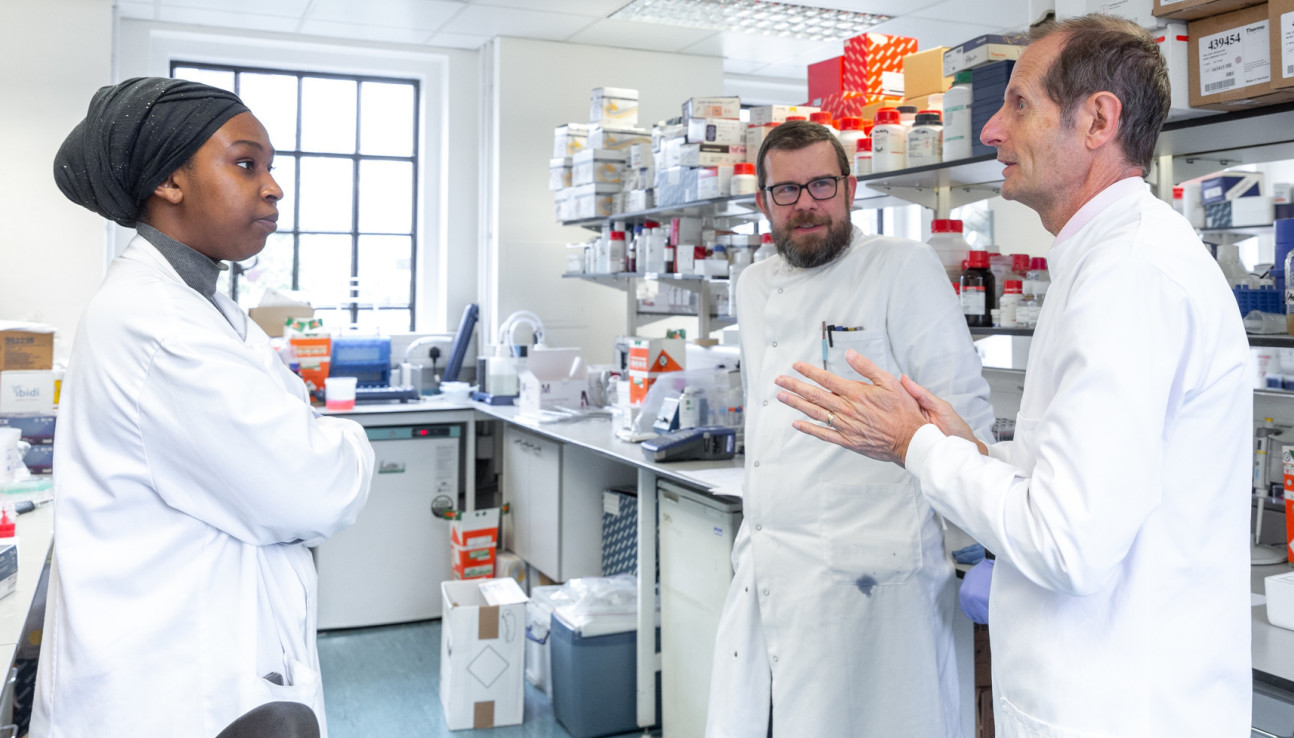 Our work is made possible through the generous contributions of our funding partners and donors. These include:
Our work is made possible through the generous contributions of our funding partners and donors. These include:
Leadership
Professor Robin Shattock
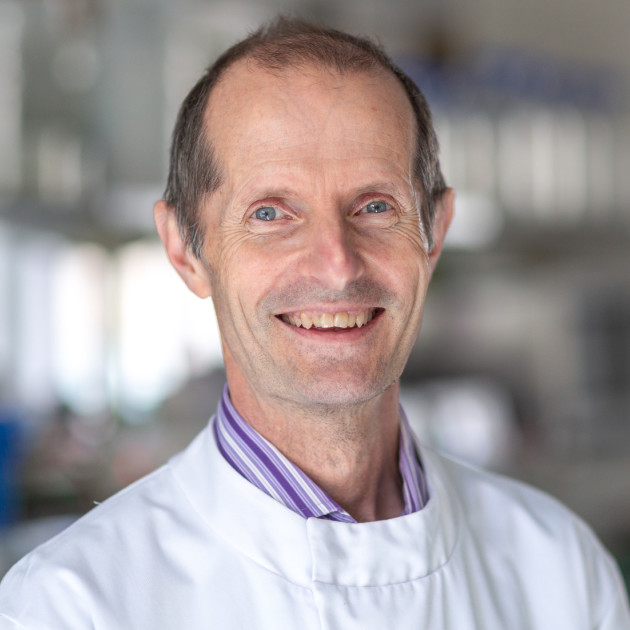
Professor Robin Shattock
Chair in Mucosal Infection and Immunity
Professor Robin Shattock has been Professor of Mucosal Infection & Immunity at Imperial College London since 2011. He leads a team of vaccine researchers and immunologists whose output findings have better-informed disease prevention approaches for pathogens such as HIV, chlamydia, and SARS-CoV-2. Professor Shattock oversees a portfolio of research that is supported by 23 members of staff including researchers, PhD students, clinical trial managers and project managers and has published over 230 peer-reviewed manuscripts.
Professor Shattock’s research focuses on the mechanisms of mucosal infection and the development of novel preventative strategies appropriate to a developing world setting. This has led to the establishment of international collaborations aimed at preclinical identification, development and selection of HIV microbicide and vaccine candidates prior to formal clinical efficacy trials. Since early 2020, Professor Shattock has led the only academic-based clinical trial of a self-amplifying RNA vaccine candidate against SARS-CoV-2, the causative agent behind COVID-19.
Professor Shattock is currently Chair of the Board of Directors of the Vaccine Manufacturing Innovation Centre (VMIC Ltd) and has leading expertise in vaccine manufacturing as well as its research. Shattock is Director of the Future Vaccine Manufacturing Research Hub, a £10 million academic Hub that supports collaborations with partners located in lower- and middle-income countries, to support the research and improvement of vaccines that impact impoverished demographics. Professor Shattock has published works using Quality by Design (QbD) as a tool to identify bottlenecks and parameters of optimisation for RNA manufacturing. These research efforts have been identified by funding bodies as useful tools to exploit for future avenues of research. The Shattock-directed Future Vaccine Manufacturing Research Hub was awarded the Imperial College President’s Award for Outstanding Team and is a finalist for the IChemE Global Awards 2021 in the Team category. Professor Shattock is the coordinator of the European Aids Vaccine Initiative 2020 funded by H2020 which continues to support excellence in HIV-1 research. During the course of this program he has overseen the development of eight new vaccine candidates that have moved from discovery to first-in-human trials.
Learn more about Professor Shattock's research
Dr John Tregoning

Dr John Tregoning
Reader in Respiratory Infections
Dr Tregoning has studied the immune responses to vaccination and respiratory infection for 20 years and has been an independent PI for 14 years. The Tregoning group’s research programme is focussed on the prevention of respiratory infections. Dr Tregoning has published over 60 articles in the area of immune responses to respiratory infection. His group have developed a range of in vivo and in vitro models of infection and vaccination, including RSV, Influenza, Pseudomonas aeruginosa, Staphylococcus aureus and Acinetobacter baumannii. Dr Tregoning has also worked closely with clinical colleagues to move mechanistic studies in mice into experimental medicine human studies. He is the departmental lead for improving equality, diversity and inclusion. Since 2015, he has been blogging about what it’s like to be a principal investigator (drtregoning.blogspot.com) and has written for Nature, Science and Times Higher Education. Dr Tregoning recently published Infectious: Pathogens and how we fight them.
Dr Katrina Pollock

Dr Katrina Pollock
Senior Clinical Research Fellow in Vaccinology
Dr Pollock is a Senior Clinical Research Fellow in vaccinology and Honorary Consultant in genitourinary medicine at Imperial College London and Imperial College Healthcare NHS Trust. She read medicine at Newnham College, University of Cambridge, and Imperial College London before completing speciality training as a clinician-scientist in genitourinary medicine and immunology. Dr Pollock’s research investigates diversity in T cell responses to accelerate discovery in vaccine design and implementation. She leads first-in-human trials and experimental medicine studies of novel vaccines against hard-to-target pathogens including HIV and chlamydia. Dr Pollock is Chief and Principal Investigator for the Imperial College London self-amplifying RNA SARS-CoV-2 vaccine and Oxford Astra-Zeneca COVID-19 vaccine trials. She received a Department of Infectious Disease award for substantial and exceptional achievement during the COVID-19 pandemic.
Main research themes
Mechanisms of infection and immunity
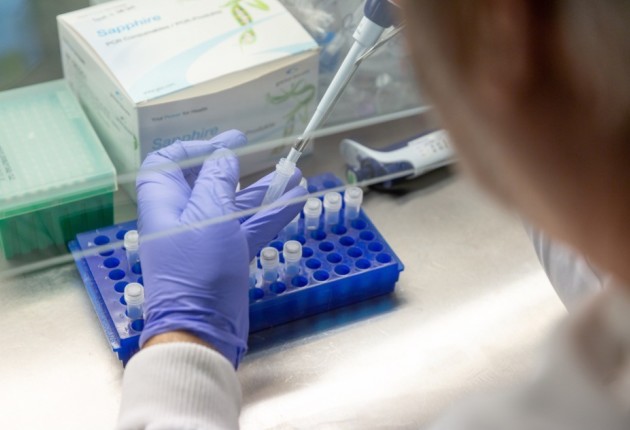 The group’s research has been instrumental in elucidating the early mechanism of HIV transmission. This has led to the establishment of international collaborations aimed at preclinical identification, development and selection of microbicide and vaccine candidates prior to formal clinical efficacy trials.
The group’s research has been instrumental in elucidating the early mechanism of HIV transmission. This has led to the establishment of international collaborations aimed at preclinical identification, development and selection of microbicide and vaccine candidates prior to formal clinical efficacy trials.
The group also investigates respiratory infections, particularly in early life. Dr John Tregoning, Reader in Respiratory Infections, and his team focus on the causes of severe respiratory infection and explore mechanisms to prevent them.
Preclinical development of infection prevention strategies
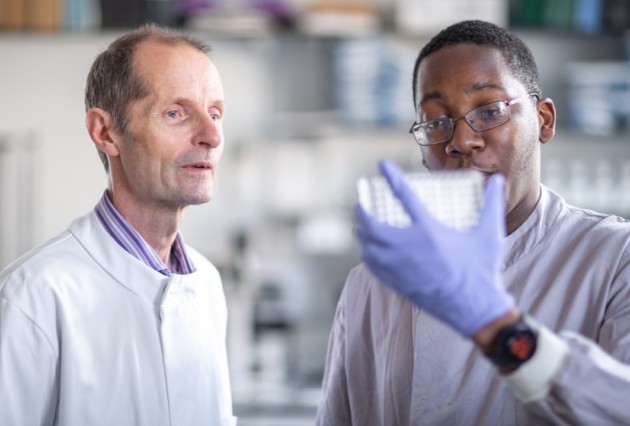 Our research aims to develop and optimise innovative technology for the prevention of high consequence infectious diseases. Professor Shattock and his team have pioneered self-amplifying RNA (saRNA) technology, a novel low-dose vaccine platform. Once optimised and validated, saRNA vaccines could be rapidly manufactured and deployed for more efficient and cost-effective responses to future epidemics and pandemics.
Our research aims to develop and optimise innovative technology for the prevention of high consequence infectious diseases. Professor Shattock and his team have pioneered self-amplifying RNA (saRNA) technology, a novel low-dose vaccine platform. Once optimised and validated, saRNA vaccines could be rapidly manufactured and deployed for more efficient and cost-effective responses to future epidemics and pandemics.
The Shattock group are also leaders in HIV vaccine development. The EAVI2020 consortium, funded under Horizon 2020 by the EU, brought together leading HIV researchers from 22 public organisations and biotech companies from across Europe, Australia, Canada and the USA. EAVI2020 partners pooled their knowledge and expertise to develop 10 novel vaccine concepts that were taken through from bench to bedside. In addition to coordinating the programme, Prof Shattock’s group were directly responsible for performing a range of Experimental Medicine clinical trials using these promising new HIV candidates.
Clinical evaluation of novel vaccine candidates
 Our clinical trials program, led by Dr Katrina Pollock and Core Immunology Laboratory Manager Dr Hannah Cheeseman, conducts human clinical trials to evaluate the safety and immunogenicity of novel vaccine candidates against pathogens such as SARS-CoV-2, HIV and chlamydia. We recently performed the first human study on a lipid nanoparticle-encapsulated self-amplifying RNA vaccine against COVID-19, showing it was both safe and able to elicit some immune response.
Our clinical trials program, led by Dr Katrina Pollock and Core Immunology Laboratory Manager Dr Hannah Cheeseman, conducts human clinical trials to evaluate the safety and immunogenicity of novel vaccine candidates against pathogens such as SARS-CoV-2, HIV and chlamydia. We recently performed the first human study on a lipid nanoparticle-encapsulated self-amplifying RNA vaccine against COVID-19, showing it was both safe and able to elicit some immune response.
Optimising vaccine manufacturing systems
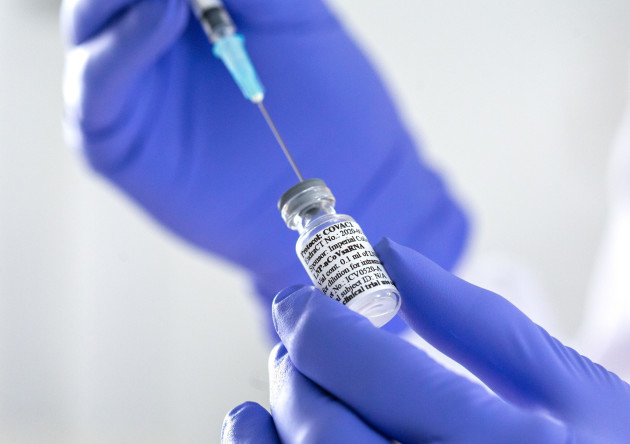 Vaccine manufacturing systems have undergone evolutionary optimisation over the last 60 years, with occasional disruptions due to new technology (e.g. mammalian cell cultures replacing egg-based systems for seasonal influenza vaccine manufacture). Global vaccination programmes have been a great success but the production and distribution systems from vaccines still suffer from costs associated with producing and purifying vaccines and the need to store them between 2 and 8 °C. This can be a challenge in the rural parts of low and middle-income countries where 24 million children do not have access to appropriate vaccinations every year. An additional challenge is the need to rapidly respond to new threats, such as the Ebola and Zika viruses, that continue to emerge.
Vaccine manufacturing systems have undergone evolutionary optimisation over the last 60 years, with occasional disruptions due to new technology (e.g. mammalian cell cultures replacing egg-based systems for seasonal influenza vaccine manufacture). Global vaccination programmes have been a great success but the production and distribution systems from vaccines still suffer from costs associated with producing and purifying vaccines and the need to store them between 2 and 8 °C. This can be a challenge in the rural parts of low and middle-income countries where 24 million children do not have access to appropriate vaccinations every year. An additional challenge is the need to rapidly respond to new threats, such as the Ebola and Zika viruses, that continue to emerge.
The Future Vaccines Manufacturing Research (FVMR) Hub has been developed with LMIC partners to deliver step changes in capability and performance of LMIC partners through a team-based approach that applies deep integration in two dimensions: between UK and LMIC partners to ensure that all the LMIC considerations are "baked in" from the start and between different disciplines accounting for the different expertise that will be required to meet the challenges.
The research programme benefits from a wide range of stakeholders including immunologists and public health specialists, life scientists, chemical and process engineers, chemists and formulation scientists, vaccine producers and, most importantly, populations in LMIC countries who will ultimately benefit from (a) reduced cost and increased availability of large scale vaccines and (b) rapid public health response to emerging threats.
To ensure this impact, the project has engaged several relevant partners, in particular, Hilleman Labs (India), MRC Ugandan Virus Research Institute, Dalian Hissen Bio-pharm, China, Incepta, Bangladesh, and VABIOTECH, Vietnam, as initial stakeholders, together with the Developing Countries Vaccine Manufacturing Network which represents 50 manufacturers in 17 countries. The program also includes the GSK Vaccines Institute for Global Health (GVGH, Italy) who have a track record for the development of vaccines for LMIC countries. Representatives from each of these collaborating organisations were not only closely involved in shaping and refining the programme but are working with the Hub as an integrated team with a view to maximising impact and ensuring large scale outcomes. The Hub researchers will work as advocates and practitioners of advanced vaccine manufacturing systems and will be at the forefront of innovations in this sector. A global and UK/RoI research network will be developed to complement the Hub and Spoke research programme and support community building.
Our people
Shattock team
 |
Jennifer O'ConnorProject Manager to Professor Robin Shattock | jennifer.oconnor@imperial.ac.uk, +44 (0)20 7594 2510 |
 |
Dr Ben PierceOperations Manager | b.pierce@imperial.ac.uk, +44 (0)20 7594 6663 |
 |
Dr Carolina HerreraAdvanced Research Fellow | carolina.herrera@imperial.ac.uk, +44 (0)20 7594 2545 |
 |
Dr Konstantinos PaschosResearch Associate | k.paschos@imperial.ac.uk, +44 (0)20 7594 1602 |
 |
Dr Katrina PollockClinical Lecturer | k.pollock@imperial.ac.uk |
 |
Paul RogersResearch Technician | paul.rogers@imperial.ac.uk, +44 (0)20 7594 0977 |
 |
Karnyart SamnuanPhD student | karnyart.samnuan17@imperial.ac.uk |
 |
Beatriz Dias BarbieriPhD student | b.dias-barbieri@imperial.ac.uk |
 |
Rachel BartonPhD student | r.barton17@imperial.ac.uk |
 |
Krunal PolraPhD student | k.polra@imperial.ac.uk |
 |
Dr Tamara ElliottPhD student | tamara.elliott04@imperial.ac.uk |
Core Immunology Laboratory
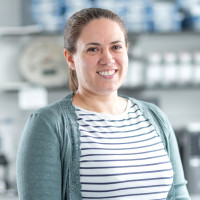 |
Dr Hannah CheesemanClinical Trials Laboratory Manager | hannah.cheeseman@imperial.ac.uk, +44 (0)20 7594 2540 |
 |
Suzanne DaySenior Research Technician | s.venables@imperial.ac.uk, +44 (0)20 7594 1648 |
 |
Leon McFarlaneSenior Research Technician | l.mcfarlane@imperial.ac.uk |
 |
Abbey EvansResearch Technician/Project Administrator | abbey.evans@imperial.ac.uk |
 |
Jennifer JoypooranachandranResearch Technician | j.joypooranachandran@imperial.ac.uk |
Tregoning team
 |
Dr John TregoningReader in Respiratory Infections | john.tregoning@imperial.ac.uk |
 |
Dr Robert CunliffeResearch Associate | r.cunliffe@imperial.ac.uk |
 |
David StirlingPhD student | d.stirling19@imperial.ac.uk |
 |
Sophie HighamPhD student | s.higham18@imperial.ac.uk |
 |
Lucy MosscropPhD student | lucy.mosscrop17@imperial.ac.uk |
 |
Ziyin WangPhD student | ziyin.wang13@imperial.ac.uk |
 |
Hadi SallahPhD student | h.sallah@imperial.ac.uk |



